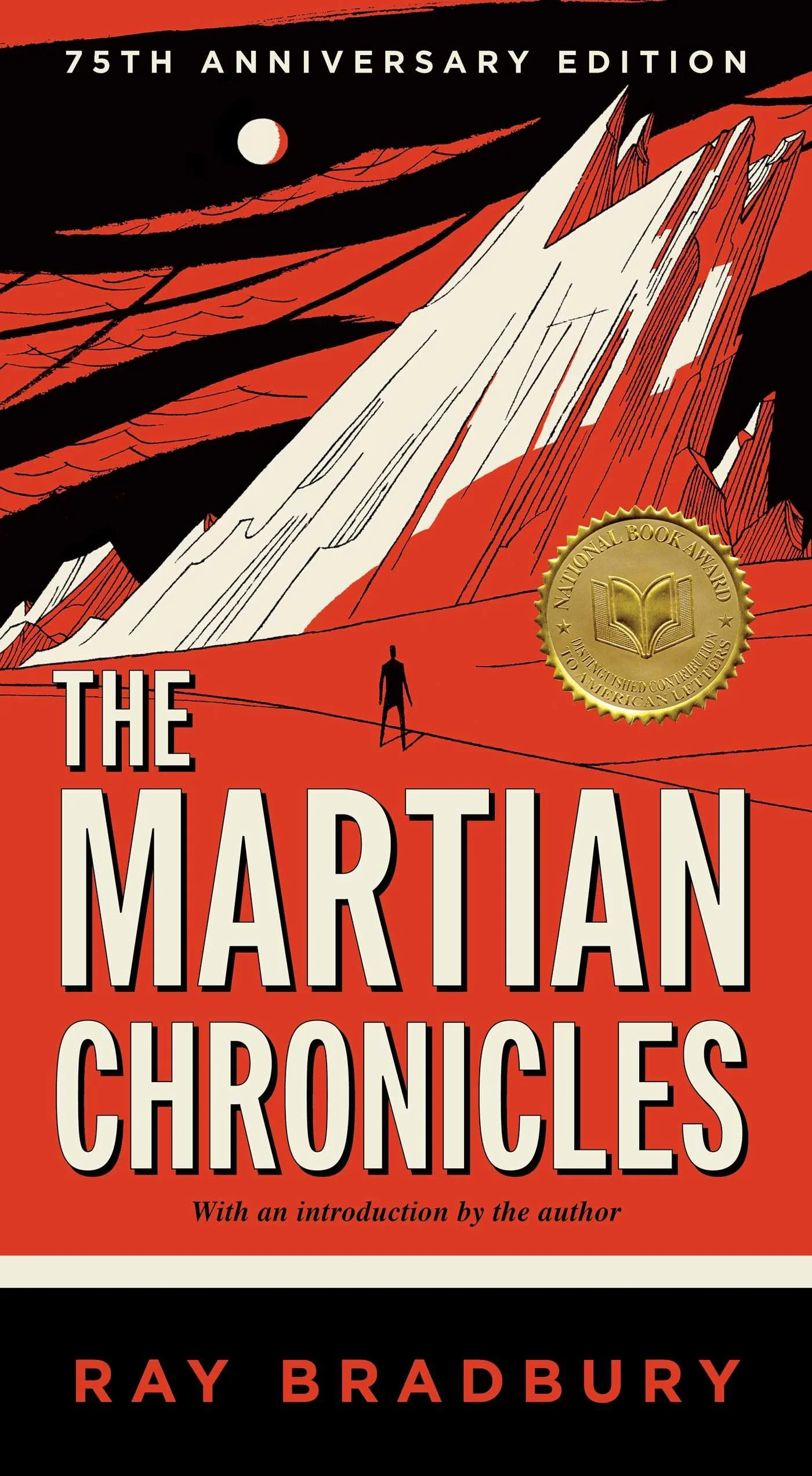The Butt-Covering Chronicles
/Simon & Schuster has just published a new 75th anniversary paperback of The Martian Chronicles, by Ray Bradbury. This edition includes a short essay by Bradbury detailing his process of drafting and revising the stories that make up the Chronicles and expounding some of the philosophical assumptions behind them. It’s an interesting short introduction to the book—especially for anyone interested in a writer’s process and craft—but even more interesting is the “Editor’s Note” that precedes it.
The note begins with some information about the provenance of the essay, which was written shortly after Bradbury submitted the manuscript for The Martian Chronicles in the fall of 1950 and was rediscovered in his papers in the 2000s, but concludes with this, where the real purpose of the note becomes clear:
“How I Wrote My Book” refers to cultural touchstones (e.g., authors, books, music, politics) that may not resonate with today’s reader. Perhaps more disturbing will be some of the words and phrases Bradbury uses. Simply put, the language of the 1950s was not politically correct. Yet “How I Wrote My Book” offers fascinating insight into Bradbury’s creative process and is, at the same time, a powerful, at times urgent, commentary on Bradbury’s beliefs, thoughts, and fears about humanity and our world. And while expressions used by Bradbury in this essay may be anachronistic, his message is timeless and rings as true today as it did seventy-five years ago.
After reading it with mounting contempt I told my wife about it. Had I misunderstood? she wondered. Maybe the note was referring to the stories, not Bradbury’s essay. So I checked again today and, no, the note is very specifically getting defensive about Bradbury’s introductory essay.
And what shocking material in Bradbury’s essay prompted this note? Having gone through the essay twice, I’m still not actually sure. One reads a note like this expecting to run into racial slurs, but there is nothing obviously offensive in anything Bradbury writes. He even goes out of his way to condemn fascism, Stalinism, and Joe McCarthy and to praise imaginative freedom in the kind of stirring, well-intentioned liberal peroration formerly beloved of English teachers.
My best guess is that Bradbury’s frequent use of “man” and “mankind” in discussing human exploration of space, the use of “his” as a generic pronoun (as opposed to now, when every imaginary writer or student is always pointedly “she”), a hypothetical “Mr and Mrs Joe Smith from Ashtabula,” and one sympathetic comparison of his Martians to Indians are the “disturbing” language the editor wants to prepare us for.
(Also, how can expressions you use in your own time be “anachronistic”? Bradbury didn’t slip into Old English or some future Anglo-Martian creole. This is just silly.)
At least the publisher didn’t censor or rewrite Bradbury’s essay. The irony of past attempts to censor Fahrenheit 451 probably ruled that out. But I was left wondering what kind of mealy-mouthed weenie wrote this, or even thought using up a whole page for it was a good idea in the first place. Notably, while an “editor’s note,” there is no editor named anywhere in the book. No one wanted to put his name on this—or, more likely, hers.
Last year I looked at some publisher’s notes and copyright page notices in recent reprints of Agatha Christie as a way to chart the hopeful trend away from “updates” and the “removal of offensive terms” toward their unexpurgated publication. Such notes are an improvement over stealth edits and censorship, but as long as this butt-covering instinct remains the work of authors who are no longer here to defend themselves will be in danger.
I ran across this new copy of The Martian Chronicles in Walmart. Just around the corner on an endcap were boxes of those cheap, faux-leather reprints of public domain classics. (Curiously, these are also published under the Simon & Schuster umbrella.) After reading this note I picked up a few of those that were likely suspects for censorship—Treasure Island, a fat volume of Lovecraft—and saw this in 8-point type at the bottom of the copyright page:
These works have been published in their original form to preserve the author’s intent and style.
Exactly right. Simple, to the point, and all the explanation necessary. More of this, and less of the editor’s note above.





